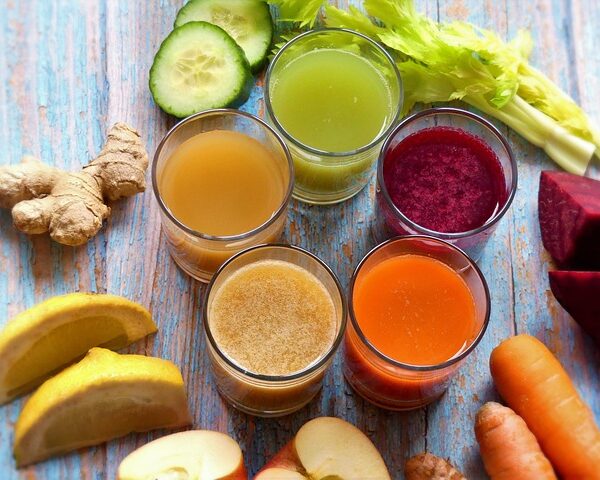Are you tired of feeling overwhelmed by fad diets and conflicting nutritional advice? Do you want to take a more holistic approach to your health and well-being?
Creating a personalized nutrition plan that works for you is the key, and with the help of tips and tricks from the pros, it can be easier than you think.
Holistic nutrition is all about nourishing your body as a whole, not just focusing on calories or specific nutrients. It takes into account your unique needs, preferences, and lifestyle factors to provide a comprehensive approach to healthy eating.
By incorporating mindful eating habits and creating a meal plan that suits your individual requirements, you can achieve sustained success in improving your overall health and wellness.
So let’s dive into how you can create a holistic nutrition plan that works for you with guidance from experts in the field.
Understanding Holistic Nutrition
 Get ready to dive into the world of whole-body health and wellness by exploring what holistic nutrition is all about. Holistic nutrition is a way of eating that takes into account not only what you put into your body, but also how it affects your mind, emotions, and spirit.
Get ready to dive into the world of whole-body health and wellness by exploring what holistic nutrition is all about. Holistic nutrition is a way of eating that takes into account not only what you put into your body, but also how it affects your mind, emotions, and spirit.
The goal is to nourish the body with nutrient-dense foods that support overall health and well-being. One of the benefits of a holistic nutrition plan is that it can help address underlying health issues, such as inflammation or hormone imbalances, by providing the body with essential nutrients.
However, there are some misconceptions about holistic nutrition, including that it’s restrictive or difficult to follow. In reality, holistic nutrition emphasizes balance and encourages flexibility in food choices to meet individual needs and preferences.
By understanding these principles of holistic nutrition, you can create a personalized plan that works for you and supports your unique health goals.
Assessing Your Unique Nutritional Needs
Assessing your nutritional needs can be a challenging process, but it’s important to remember that everyone’s body is unique and requires different nutrients depending on factors such as age, gender, and activity level.
To start, consider any nutritional deficiencies you may have. For example, if you’re lactose intolerant or have celiac disease, you may need to find alternative sources of calcium or gluten-free grains respectively. You may also want to think about any dietary restrictions you follow for ethical or religious reasons.
Next, take into account your lifestyle habits. Are you a vegetarian or vegan? Do you eat mostly whole foods or rely heavily on processed snacks? These factors will impact the types of nutrients your body needs and how much of each nutrient is required.
It can be helpful to consult with a registered dietitian who can assess your individual needs and create a personalized nutrition plan that works for you. By taking these steps to assess your unique nutritional needs, you’ll be better equipped to create a holistic nutrition plan that supports optimal health and wellbeing.
Creating a Personalized Meal Plan
Crafting a meal plan that’s tailored to your unique nutritional needs can be challenging, but with some thought and effort, you’ll be able to nourish your body in a way that feels satisfying and fulfilling.
One of the first steps in creating a personalized meal plan is to consider your schedule and lifestyle. If you’re someone who’s always on-the-go, meal prep may be an essential part of your routine. On the other hand, if you have more time available for cooking each day, you may prefer to prepare meals fresh each evening.
Another important factor to consider when creating a personalized meal plan is portion control. It can be easy to overeat or choose unhealthy options when portions are not carefully measured out. A helpful tool for managing portion sizes is using a food scale or measuring cups/spoons during meal preparation.
Additionally, try incorporating plenty of vegetables and lean protein sources into your meals to help keep you feeling full throughout the day while also providing essential nutrients for optimal health.
Incorporating Mindful Eating Habits
Incorporating mindful eating habits into your routine can be a game-changer, allowing you to savor your food and enjoy the experience without distractions. It’s all about being present in the moment while you’re eating, paying attention to the taste, texture, smell, and appearance of your meal.
Here are some tips and tricks for incorporating mindful eating practices into your daily routine:
– Practice mindful snacking: Instead of mindlessly munching on snacks while watching TV or scrolling through social media, take a few minutes to focus solely on the act of snacking. Pay attention to how the snack tastes and feels in your mouth.
– Use all five senses: When preparing or enjoying a meal, use all five senses to fully engage with it. Take in the colors and smells of each ingredient as you prepare it. Savor each bite by focusing on its texture and taste.
– Listen to your body: Intuitive eating practices encourage listening to your body’s hunger cues instead of following strict diet rules. Eat when you’re hungry and stop when you’re full – this will help you build a positive relationship with food.
By incorporating these mindful eating practices into your nutrition plan, you’ll not only improve digestion but also build healthier habits around food that will last a lifetime. Remember that every individual is unique; therefore, finding what works best for you may take time, but don’t give up!
Sustaining Long-Term Success with Holistic Nutrition
To sustain long-term success with holistic nutrition, you’ll need to adopt healthy habits that become second nature, allowing you to effortlessly nourish your body and mind.
One way to achieve this is by establishing accountability measures. This could mean tracking your food intake or exercise routine, or even having a trusted friend or coach check in on your progress. Having someone else to answer to can help keep you motivated and on track towards achieving your goals.
Another key factor in sustaining long-term success with holistic nutrition is building a support system. This can include friends, family members, or professionals who are knowledgeable about nutrition and wellness. Surrounding yourself with individuals who share similar values and goals can help keep you inspired and motivated throughout your journey.
Additionally, having access to resources such as cookbooks, meal plans, and educational materials can provide guidance and inspiration for maintaining a healthy lifestyle over the long term. By adopting these strategies for accountability and support, you can create lasting change that will benefit both your physical health and overall wellbeing.
Can I still incorporate my favorite foods into a holistic nutrition plan?
Balancing indulgence with a holistic nutrition plan is possible! You don’t have to give up your favorite foods altogether.
Instead, try incorporating nutrient-dense swaps into your meals. For example, swap out regular pasta for whole-grain or chickpea pasta, or choose dark chocolate instead of milk chocolate.
Using symbolism can help you remember the importance of balance in your diet – think of it like a seesaw where each side represents indulgence and healthful eating.
By making small changes and finding ways to incorporate your favorite foods in moderation, you can create a balanced approach to nutrition that works for you.
How often should I reassess my nutritional needs?
It’s important to regularly monitor and reassess your nutritional needs.
Nutritional assessment frequency can vary depending on individual factors such as age, activity level, and health conditions. However, a general rule of thumb is to assess every few months or at least once a year.
This ensures that your nutritional plan is still meeting your needs and goals. By monitoring your nutrient intake through food diaries or working with a nutritionist, you can make adjustments as needed to maintain optimal health and wellness.
Remember, the key to success in any nutrition plan is consistency and commitment to making healthy choices for yourself.
Are there any supplements or vitamins that are recommended for a holistic nutrition plan?
You can elevate your holistic nutrition plan by incorporating top recommended supplements and vitamins into your diet.
These supplements include omega-3 fatty acids, probiotics, vitamin D, magnesium, and iron.
While these supplements have benefits such as improving heart health, aiding digestion, and strengthening bones, there are also potential drawbacks to consider such as interactions with medications or possible toxicity if consumed in excess amounts.
It’s important to consult with a healthcare professional before starting any supplement regimen to ensure that you’re taking the appropriate dosage for your individual needs.
Ultimately, incorporating supplements and vitamins into your holistic nutrition plan can be a beneficial addition when done responsibly and carefully considered.
How can I incorporate holistic nutrition into my busy lifestyle?
Incorporating holistic nutrition into your busy lifestyle can be challenging, but it’s definitely achievable with a little meal prep and some strategic choices when eating out.
Meal prep can save you time and money while ensuring that you have healthy options readily available. Consider making a large batch of quinoa or roasted vegetables to add to meals throughout the week.
When eating out, look for restaurants that offer whole food options like salads or grilled proteins, and don’t be afraid to ask for modifications to fit your dietary needs.
Remember, small changes can make a big impact on your overall health and well-being.
Can holistic nutrition help with specific health conditions, such as diabetes or high cholesterol?
As the adage goes, ‘you are what you eat.’ This rings true when it comes to managing chronic conditions like diabetes or high cholesterol.
Holistic nutrition offers numerous benefits for those who suffer from these health issues. Unlike traditional approaches that focus on treating symptoms, holistic nutrition targets the root cause of the problem.
By incorporating whole foods and natural supplements into your diet, you can improve your overall health while alleviating specific symptoms. While it may take more time and effort than popping a pill, the long-term benefits of holistic nutrition are undeniable.
So why not give it a try?
You’ve now gained a deeper understanding of holistic nutrition and learned how to assess your unique nutritional needs, create a personalized meal plan, incorporate mindful eating habits, and sustain long-term success.
Just like a puzzle, you have all the pieces to create a complete picture of your health and wellness.
Remember that creating a holistic nutrition plan isn’t about perfection but rather progress. It’s like planting seeds in a garden; it takes time, patience, and consistency to see growth.
Keep in mind that small changes can make big impacts over time. With dedication and commitment to your holistic nutrition journey, you’ll reap the benefits of feeling more energized, nourished, and balanced in all aspects of your life.
So take action today towards creating a sustainable and fulfilling lifestyle that supports your overall well-being!











